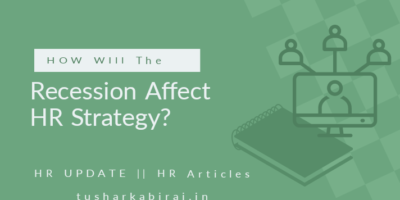Therefore, you are considering switching to remote work, either because you want to work from home or perhaps you want to lead a digital nomadic lifestyle. But you’re wondering: “What should I be trying to seek out during a foreign job?” Or, if you are already “remote”: “Is the remote work overhauled, or do I only have one bad employer?”
If this sounds good to you, keep reading because we should be looking for a remote employee for a remote employer.
What is a digital nomad?
A digital nomad is one that is called “location-independent” as a result of being able to work remotely, and takes advantage of this unique opportunity to travel continuously
Keeping current things in mind (hello, COVID-19 this), it is worth noting that being a digital nomad does not mean that you need to travel between countries. Many digital nomads travel to their countries, sometimes through their tourist vans.
This is one thing; It’s really interesting to check out!
Are you (or why does one want to be) remote?
First of all, there is nothing wrong with working only remotely (nomadic or otherwise) because it is a hot new thing and it sounds exciting. We only live once, so why not?
This is very true if you learn best by doing. If it turns out it’s not for you, then there’s really no harm done.
Who says you can’t go home?
However, the most likely scenario is that you are about to work remotely because your current lifestyle does not allow you to be your best self. Perhaps you want to learn more about other cultures (or even soul-searching), or perhaps you want to strengthen your lifestyle by embracing flexible hours or changing your routine in the hope that it will Can improve mental health or increase your level of work. .
Also, if you are thinking of international digital nomads, there is nothing wrong to wander a little.
Some digital nomads simply enjoy a cheaper cost of living, by increasing their city / country gross domestic product (GDP) (which benefits the city / country). To contribute responsibly).
However, it is being reported that employers do not always enable remote work, as well as they (when they are regarded as a completely remote company), actually adapt to remote when looking for digital nomads. Do you look for a job?
let’s take a look.
- Flexible hours
Synonyms for remote work are flexible for one hour, especially when distributed to team members (due to multiple timezones). This appeals greatly to digital nomads because they usually want to find out the city / country they are going to do.
But “flexible hours” can be misleading. Sometimes, it means “by the time the work is done” – which in translation actually means “we will keep sending you more work while trying to convince you that you are misusing your time”.
Many remote workers state that, although they technically have the freedom to work whenever they want, there is so much work to do that they have literally no life in work-life balance.
A remote work contract should include the following:
Forced leave amount
How many hours will you have to work
A crystal-clear overtime agreement
Hopefully, this should all be clear from the job description, but if it is not, then enter a remote job interview with a bucket of questions. trust your instincts.
Talk to other remote employees if you can.
- Productivity / Mental Health
As much as your remote employer should care about your work life, they ought to also care about your life. In addition, it deeply affects the way you work.
Now, a remote job description is not necessarily an accurate representation of the job (or the company it hires), so be sure to ask these questions during a remote interview:
Generally, is the entire company remote?
Does the company have a wellness policy?
Does the company invest in welfare and education?
Does the company really help you work remotely?
Can you talk to other employees before accepting a job?
Then, quit forced and how flexible is it?
Overall, does the corporate allow you to be your best self?
There is a big difference between a company that allows you to work remotely because you requested it (or because it somehow benefits them – for example, through small overheads) and a company that Really advocates remote work and its benefits.
Again, ask the right questions.
- Affordable living costs
Certainly between decent tourism and affluent migrant communities (in this respect, I think?), Digital nomads and tourism are not better decentralized. However, if you live some moderate lifestyle,
Conclusion
Remote work is not necessarily better. This is just different. But it is being said that many remote workers are frustrated with the remote work lifestyle, but fail to make it a remote job, which is either bad or not suitable for them.
It is obviously hard not to work, but make sure you ask the right questions and see for yourself as well.
When all else fails, think about using Blind or Glassdoor to ascertain what other employees are saying about the corporate .
Ready for your remote job search? Visit SitePoint Remote to find your next role, where we handle the best remote jobs for developers, designers and digital professionals.









Leave a Reply